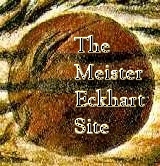|
|
||
 |
Meister Eckhart Home / Works by Meister Eckhart - Quotes / Inspired by Eckhart / Studies / The Papal Condemnation / Mail & Announcements / Links / Books |
M. LAISTNER
Knowledge of Greek in Western Europe during the earlier Middle Ages
Chapter 10 (The Study of Greek) of Laistner's, Thought & Letters in Western Europe - A.D. 500 to 900, N.Y. 1931, pp. 238-250
Much has been written in modern times on the knowledge of Greek in Western Europe during the earlier Middle Ages. Opinions on the subject have sometimes diverged widely. In general, however, the older writers, it must be emphasized, were in the habit of absurdly overestimating the extent to which this language was studied and understood. Their attitude was uncritical because the mere occurrence of occasional Greek words in an author seemed to them sufficient proof that he was something of a Hellenist. The first scholar who, in dealing with this as with so many other topics, opened up a new approach to a difficult subject was Ludwig Traube. Whilst warning against the assumption of his predecessors, he argued that the Irish were virtually the only students of Greek, and that the occurrence of Graeca, Greek words or tags, in a manuscript pointed to Irish authorship or influence. There has been in turn some reaction to these views in recent years and a distinct tendency to underestimate the contribution made by the Irish. But Traube's thesis is still sound, if by Irish we understand those who came to the Continent from Columban's time on; for there is no satisfactory evidence that they could have acquired any Greek, apart from a few ecclesiastical terms, in their homeland. The old view, though entirely lacking in proof, is still met with from time to time, chiefly because those who propound it repeat what earlier books had asserted, without themselves investigating what is to be understood by "a knowledge of Greek". If by that phrase is meant the ability correctly to understand a Greek author theological or secular, or the Greek Bible, then assuredly competent Hellenists of the eighth and ninth centuries can be counted on one hand. If, on the other hand, it merely implies acquaintance with the Greek alphabet, with a few passages from the Greek liturgy, or with a few isolated Greek words or phrases, generally from the Old and New Testament, then the sum of the accomplished will be somewhat greater, though still small in proportion to the total number of literate men. It has been a radical fault of many modern discussions of the subject that little or no distinction has been drawn between the first and the second class that we have indicated. It would logically be as absurd to class a tyro, who had painfully mastered six chapters of Chardenal, and a holder of a University chair together by vaguely saying of both "that they knew French".